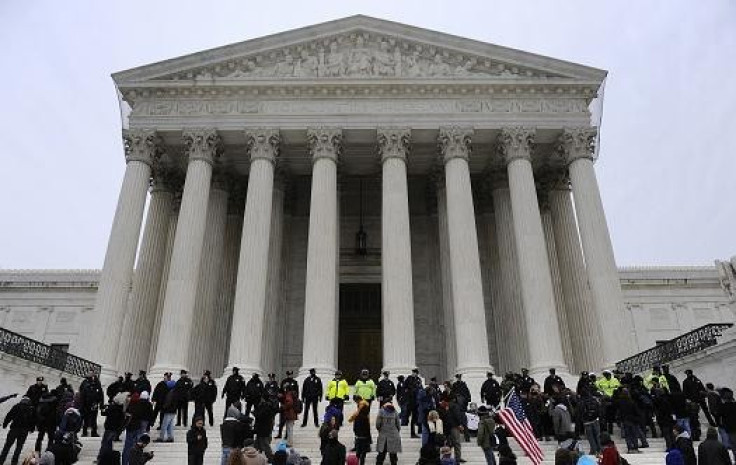US Supreme Court to settle row between workers' birth control coverage and bosses' religion

The US Supreme Court is taking up the battle — again — between female workers' right to health insurance coverage for contraception and their bosses' religious objections to birth control. The case pits constitutional rights of religious freedom against a woman's right to equal healthcare access.
Two years ago the court ruled in Hobby Lobby v. Burwell that employers didn't have to pay for such coverage if they had religious objections to doing so. The court agreed that the government's 2010 Affordable Care Act requiring such coverage "furthers a legitimate and compelling interest in the health of female employees," Justice Anthony Kennedy ruled. The question was whether it could be carried out without infringing on religious freedoms.
Now the court will decide if the Obamacare solution — arranging to cover the health insurance as long as objecting employers sign a statement saying they object to contraception for religious reasons — will work under religious freedom protections.
The employers before the court now insist even that is too sinful for them to comply with and is an affront to their beliefs, reports the Washington Post. The organizations involved, such as a programme run by Catholic nuns, want an automatic, blanket exemption that's already afforded to churches.
That demand goes too far, argued the US solicitor general in the government's brief before the court. "They assert a right not only to be relieved of the obligation to provide contraceptive coverage themselves, but also to prevent the government from arranging for third parties to fill the resulting gap," states the brief.
"If accepted, that claim would deny tens of thousands of women the health coverage to which they are entitled under federal law, and subject them to the harm the law is designed to eliminate."
With Justice Antonin Scalia's death, only eight justices will hear the case. The four justices who objected to the Hobby Lobby decision will likely sign off on the Obamacare arrangement. But a deadlock would assure contraceptive coverage only in regions where lower courts have already decided in favor of employees' right to equal access to health-are coverage.
© Copyright IBTimes 2024. All rights reserved.






